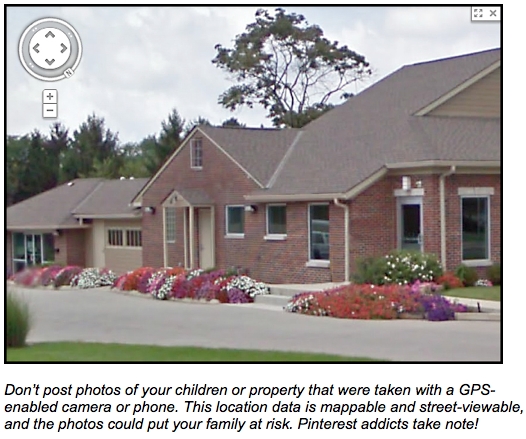- A TechNote on Information Security
- Dirk Racey, Private Security Investigator/Observer
When I opened an online account with those wacky "What's in your wallet?" people, their site made me verify my identity with questions about cars I'd owned, places I'd lived and people I knew. Their database remembered more about me than I do. It remembers more about you than you do. And criminals can use the tiniest mite of such data to swipe your identity.
According to the Identity Resource Center, ID theft has become the fastest-growing crime in the U.S. A recent Javelin Strategy & Research report adds that 36 million people were hit last year. So why give more and more of your personal data to the online world?
It's senseless and dangerous. Instead consider the following tips:
Sadly, it's impossible to prevent all identity theft. But the above might help.
According to the Identity Resource Center, ID theft has become the fastest-growing crime in the U.S. A recent Javelin Strategy & Research report adds that 36 million people were hit last year. So why give more and more of your personal data to the online world?
It's senseless and dangerous. Instead consider the following tips:
 Don't "friend" people or "like" Web sites you don't know. Check that requests from folks you do know are legit before responding. Don't respond to, click links in, or even open spam or phishing emails. It confirms that your address is live and hackable.
Don't "friend" people or "like" Web sites you don't know. Check that requests from folks you do know are legit before responding. Don't respond to, click links in, or even open spam or phishing emails. It confirms that your address is live and hackable.
- Don't open unsolicited emails from the FBI. They'll send a letter if they need to reach you. I just received an "FBI" email threatening arrest if I didn't open it. (I didn't.)
- If a prospective employer asks for your Facebook (or any other) password: (1) tell them sure, if they'll fork over the access codes to their corporate sites, or (2) tell them to "get real" and walk away. There is no third option. It's a bad idea, and if you use the same password for multiple sites and accounts (which you shouldn't), it's a horrible one.
- Make all online profiles "private." If you can't, give an incorrect birthdate and omit your address. Yes, this violates the whole social-networking thing, but if you insist on hanging your life out for public view, blame yourself when it's used against you.
- Post carefully. Delete past posts, browsing histories or video playlists that you don't want others to see.
- Don't blog, tweet, Facebook, FaceTime or Foursquare info that can be used to steal your property or identity. Is it more important for the world to know you're vacationing in June or to keep burglars who troll for such intel out of your house while you're away?
- If you don't want Apple or Android devices tracking your movements 24-7, turn off Apple's Location Services when they're not needed. In Android, tell Google's Dashboard to stop gathering this data and delete what it already knows.
- Change your Internet router's default password and wireless access code. Cruising the neighborhood, we noticed that our iPad picked up our neighbors' routers. Hackers can do the same. If they detect your router, they'll throw password crackers at it, possibly break in and make your online transactions theirs. Turn your router off when it's not needed.
- Don't depend on Web sites' "basic" security questions. Birthdays, addresses, maiden names, schools and pet names can be found on the Web (especially if your life's all over the social networks). If a site offers extra security measures, use them. Instant transaction alerts from my bank and credit-card companies allowed me to spot a fraudulent charge in Paris. Similar alerts stopped the attempted theft of Microsoft co-founder Paul Allen's identity (along with $15,000), and da perp got nabbed.
- File income taxes early, before thieves beat you to your refund. The IRS warns that tax thefts grew from 49,000 falsified returns seeking $247 million in refunds in 2010, to 262,000 returns seeking $1.5 billion last year.
- Use cash. One day last week, the Boston Globe listed four local businesses that had been hacked. Thousands of customers' data was snatched, and the only way customers could have prevented this theft would have been to wave greenbacks instead of plastic.
- Make passwords uber-strong, with no recognizable words, names or dates. Change them often.
- Shred unneeded documents (and envelopes) that show your name and that of any firm with which you do business.
- Use firewalls and malware scanners. Keep them (and your browsers) updated.
- If you didn't approach someone first, give them nothing. This means over the Web, on the phone, out in the streets or at your front door.
Sadly, it's impossible to prevent all identity theft. But the above might help.











Excellent, common sense information - thanks for sharing!